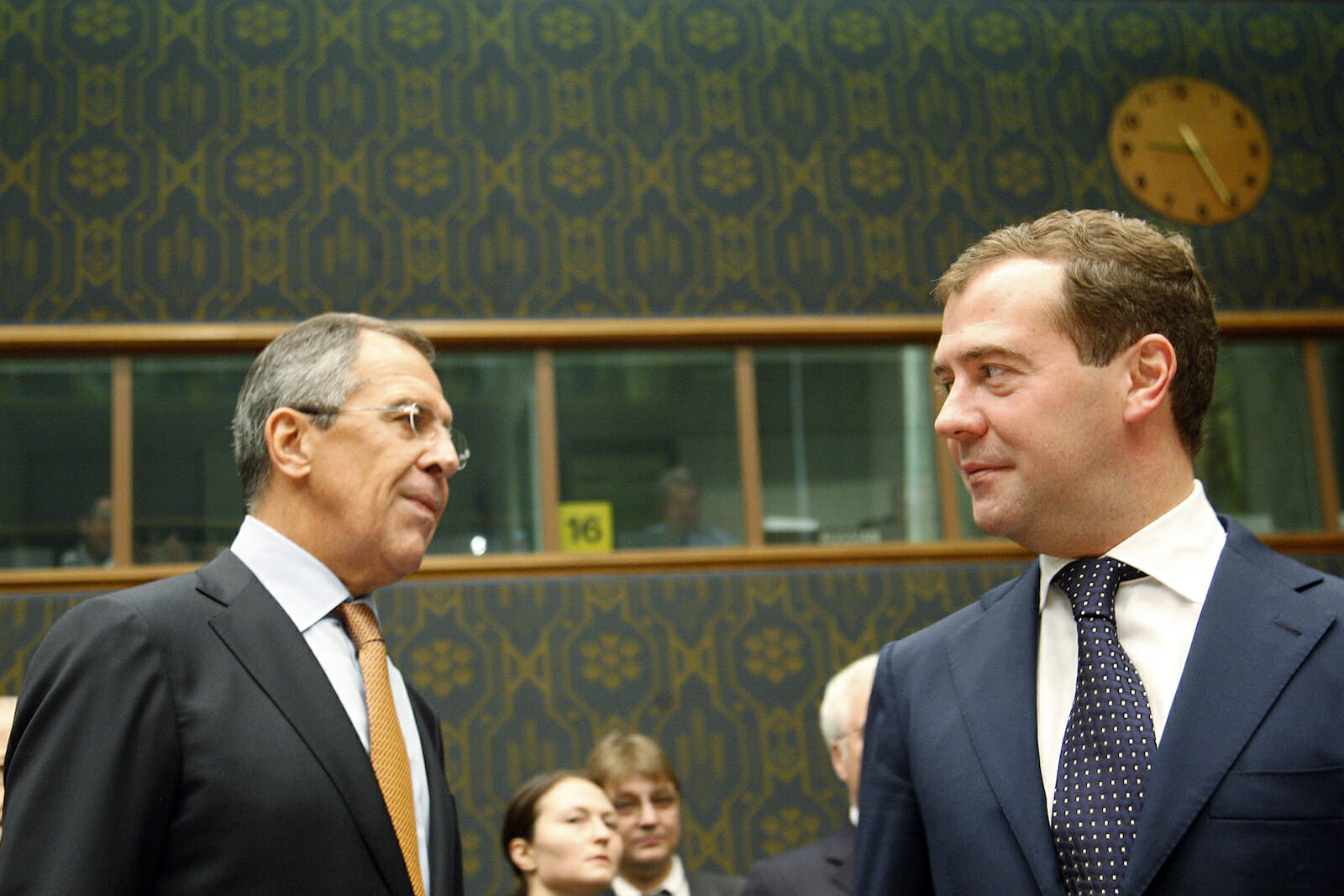
The Kremlin’s Version of Russia Without Fools
It’s a new website that seems befitting of the angry mood amongst Russians over the last month’s Duma elections and the coming March Presidential elections, which have all but promised the return of Vladimir Putin to the Kremlin.
Called Russia Without Fools (Rossiya Bez Durakov), the website begins with the following words: “Friends, everyday we are faced with stupid standards and laws, decisions far from elementary logic, and complex regulations and unexplainable restrictions…And so we personally offer to you a real opportunity to find and destroy specific stupidities.”
This new web portal, which is currently in beta-version, encourages users to register and to make public stories of their local government, bureaucrats, or businesses that create nonsensical regulations and bureaucracy for the average Russian citizen. And while it seems like an internet project started by anti-Kremlin opposition groups, the website is actually the brainchild of President Medvedev’s “Big Government” initiative, which seeks to make more accessible and accountable Russia’s civil servants with its citizens.
According to the website, all the posts will be reviewed and become “subjects of work” for regional deputies and the Office of the President of the Russian Federation. The site so far has a listing of 1,100 complaints that is accompanied by map of Russia, which pinpoints each report.
Examples of some posts range from criticism of tax and pension regulations to grumbles about wasted public money on useless local construction projects. Though the website seeks to tap into Russia’s characteristic loathe and tolerance for red tape, Russia Without Fools seems to highlight more on the bureaucracy rather than the actual bureaucrats. By clearly stating that the intent of the website is to shed light on irrational laws and bureaucratic procedures hampering national development, it seems to be steering clear of calling out names and pointing fingers at individuals.
Still, the site does include a section titled “Quotes by Bureaucrats,” though it either lacks meaty substance or only reports on low-level regional government officials.
A cynical interpretation of this government Russia Without Fools initiative would be to call it a ploy by the Kremlin to ease public displeasure before the March Presidential elections. Perhaps it is. However, the website does represent one of the more publically visible and relatively productive steps by the Russian government in its decades long fight against terrorism. This website appears to be a microcosm of a number of efforts by the Kremlin to release steam from a boiling kettle pot of growing public opposition to United Russia and the return of Vladimir Putin.
President Medvedev has taken on the lead role of touting populist messages, assuring the Russian public that he understands their discontentment. Last month, after the upsetting December Duma elections, he proposed a number of changes to the nation’s electoral system. This included a call for direct elections of regional governors, a reversal of a law passed by then-President Putin, which had strengthened the Kremlin’s ability to choose local leaders. During the same speech he also advocated for simplifying the system of party registration and to decrease from 2 million to 300,000 the required signatures needed for independent Presidential candidates.
All these moves come at a time when the United Russia Party and soon to be President Putin will be facing a new political and social reality. In their next term, Putin and Medvedev will most likely inherit a still restive and angry population and a Duma where their party is no longer in the two-thirds constitutional majority. And so, while populist efforts such as Russia Without Fools or rhetoric of serious electoral reform usually whimper off into obscurity after the end of election campaigning, the soon-to-be President Putin may very well have to continue these populist pushes far after the Kremlin is secured.
As for the effectiveness of the Kremlin’s Russia Without Fools, the jury is still out. In the meantime, there are plenty of other and better venues for Russians to relieve their grievances. A far more critical version of Russia Without Fools, that details exploits of high-level officials, including members of the inner Kremlin cadre, is a website called Kompromat. Run by blogger Sergey Gorshkov, the website has garnered him much public attention but also a number of lawsuits by people such as Elena Baturina, the wife of former disgraced Moscow Mayor Yuri Luzhkov, and Oleg Deripaska, one of the world’s wealthiest men.
Nowadays, Gorshkov is not alone in his fight to expose corruption within the Russian elite. Political activist and blogger Alexey Navalny has also done an extensive amount of work on his blog and official website, focusing on corporate and government corruption. And so one begins to wonder if far more critical websites such as Navalny’s and Gorshkov’s are available to everyday Russians, what true impetus of change can the government-backed Russia Without Fools create? Still, the effort is laudable and perhaps indicative of the Kremlin’s slow but eventual realization of the increasing and permanence of democratic demands by the Russian public.
Change for a country as large and bureaucratically heavy as Russia is expected to come slowly. But if one were to measure change according to the Kremlin’s Russia Without Fools, it would move at a glacial pace. Since I’ve last checked, there are now 1,282 new complaints.

